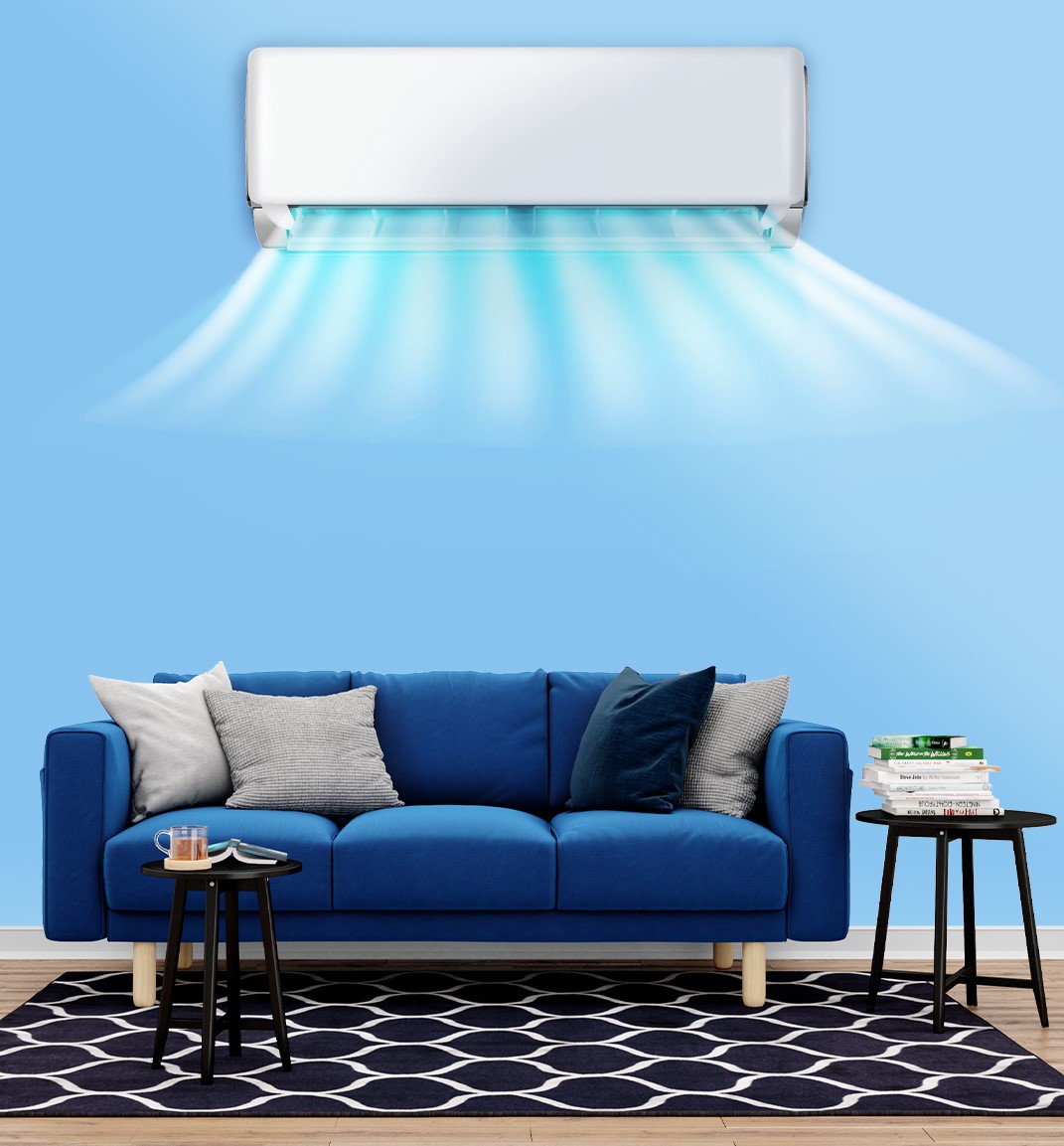Protect Your Family In Clean Filtered Air: Inverter Air Conditioning Technology Driving Down the ‘Cost of Cool’
Posted:
July 20, 2021
Categories:
Newsroom

In a post-pandemic world with quarantines, lockdowns, and extra time spent indoors, a heightened awareness around air quality and viruses, have caused many to place added attention on ventilation as a way to minimize the spread of COVID-19 as well as protect themselves and their families against freak weather such as the Saharan dust storms which regularly engulf the Caribbean region.
According to the World Health Organization (WHO), the risk of the spread of the virus is higher in crowded and poorly ventilated spaces where people spend long periods of time together in close proximity. Improving indoor ventilation can reduce the risk of the virus spreading indoors.
Research by The Porter and Chester Institute, a US based technical school, outlined how air conditioning units works in relation to improved indoor ventilation. The first element to be acknowledged is that air conditioners do not draw fresh air from outside into the area they are trying to cool. Split AC units use a condenser, located in the outside unit, and an evaporator, located in the inside unit. The air within the target area is drawn into the inside unit, filtered, and cooled by a temperature exchange by the refrigerant filled evaporator. The refrigerant warms and is moved to the outside unit, where it is converted back into a liquid to begin the process over again.
Most air conditioners have basic filters that capture dust and fine particles in the air, which would be from the area where the AC unit is located. Some filters are even removable. According to The Porter and Chester Institute the effectiveness of the filter, if so equipped, is dictated by the Minimum Efficiency Reporting Value (MERV) scale. MERV is used to evaluate the efficiency of an air filter based on how effective it is at catching particles of varying sizes and runs on a scale from 1 to 20. The higher the number on the filter, the more effective it is at stopping particles. Home and business users need to check the number on the filter that their specific AC unit may use. Eight is best for the removal of pollen, mold, dust, dirt and hair. Filters rated at thirteen or higher are able to remove the elements rated below it on the scale as well as bacteria and virus particles. For those serious about keeping their environment clean, there might be the option to move to a high-efficiency particulate air (HEPA) filter. These can remove up to 99.7% of particles from the surrounding air.
To prevent the spread of COVID-19 the public has been advised to avoid being in close or direct contact with an infected person, to wear masks and to wash hands frequently. However, The Atlantic, a news website, highlighted that two researchers from Harvard Medical School argued recently that beyond washing hands and wearing masks, air disinfection has been a largely missing element of the strategy to prevent Coronavirus transmission.
The issue could be especially important as we head into summer. Hotter temperatures will drive people indoors just as many places are reopening. This potential increase of indoor activity may cause air conditioning to become indispensable device not just for cooling, but for limiting the amount of contaminants in the air. The Porter and Chester Institute further explained that the key is not only to confirm if the AC unit has a filter, but what type and then upgrade if necessary. Maintenance is also key with a recommended two-month replacement or cleaning schedule.
As this summer is predicted to be a smoldering one, those who combat the heat using AC units may find that they can keep cool in clean air with lower electricity costs due to new advancements like Inverter Technology. According to Appliance Traders Limited engineer, Carl Ennis, “with the latest advancements in air conditioning builds such as the nanoe™ X technology found in select Panasonic inverter units, your AC can virtually inhibit the growth of bacteria and viruses as well as effectively remove dust and major allergens caused from mites, animals, insects and fungi for a cleaner indoor environment.”
Ennis continued, “an AC unit is not only a long-term investment for comfort, it offers some semblance of relief for those plagued with the health effects that come with seasonal changes and irregular weather conditions year round.”
In order to reap the benefits of AC ownership, Ennis stressed the importance of regular maintenance. “Some may not realise, but an AC requires regular upkeep through servicing in order for it to perform efficiently. While units that possess the nanoe™ X technology have a built in sensor that will indicate when its filter requires replacement, regular servicing of any air conditioner will help to conserve on energy use, provide better air flow, air quality and ultimately prolong the lifespan of your unit, said Ennis. It is recommended to service your AC unit, every six months.
Last month, Appliance Traders Limited launched their eagerly anticipated annual AC Summer Sale which comprises a raft of exceptional prices on Panasonic, LG and Prizm air conditioning systems, the chance to win big prizes as well as payment holidays and much, much more.

